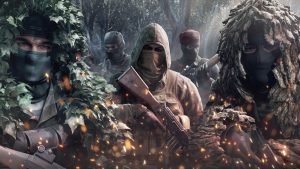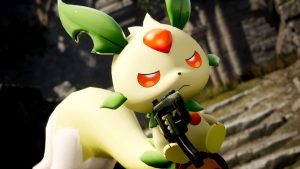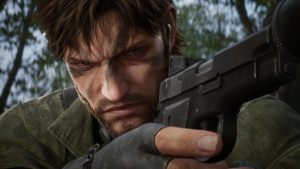
If you were ever on the fence about Dynasty Warriors, Origins leaves little room for excuses to jump into the iconic musou series. As the name suggests, Origins is something of a reboot for the series. This game essentially distills the Dynasty Warriors experience into an intimate origin story of the eponymous three kingdoms era through the eyes of a nameless hero. It’s the perfect place to jump in, and not just because the main character has amnesia and acts as the trope-filled springboard for new players.
Dynasty Warriors: Origins begins at the very beginning of Three Kingdoms lore. The Yellow Turban Uprising is blossoming and the fall of the Han dynasty is at hand. What we have here is something vastly more story-driven and personal than other games in the series. This almost feels like a JRPG at times, what with the amnesiac protagonist, bond events, and branching narrative covering the game’s latter half. Though this fresh new direction still feels rather limited and in its infancy, it is welcome considering the quantity over quality bloat we’ve been getting with recent titles like Dynasty Warriors 9. This is a much more dialed-in experience, something that leaves breathing room and doesn’t shy away from intimate character moments. And not to worry, musou vets, the difficulty isn’t sacrificed for the sake of new players here. This game offers plenty of depth and challenge for longstanding players, though some of veers in the irritating direction.
Unfortunately for vets and cadets alike, the gameplay can only be experienced from the perspective of the nameless protagonist. A protagonist who players cannot create themselves or customize with regard to cosmetics. Yes, despite the perfect opportunity with such a blank slate, Origins has no character creation whatsoever. At least the unnamed amnesiac can wield up to nine different weapon types with unique arts and combos. There’s plenty of variety in that sense at least.

"You can wield up to nine different weapon types; each handle differently and feature individual arts and combos, providing plenty of variety"
Likewise, the skill tree gives the player some choice in what combat style to prioritize. Want to play as a heavy defensive tank DPS build? The Podao’s massive impact along with defensive-oriented accessories and skills allow you to be an impenetrable stone wall if you so wish. And really, I do appreciate just how different each weapon type feels. The aforementioned Podao is a slow but deadly thing that feels every bit as heavy as it is. And the unique arts that go with the spear make you feel like a high-flying dragoon with its aerial javelin antics, for example. Another plus is you can switch up weapons mid-battle, just in case a particular build strategy isn’t working well against an army.
But even with adequate build options, it’s still a bit of a bummer that we can’t control a bevy of heroes like you could in past entries. Origins does hand you the reigns of nine historical officers if you choose to partner with them during specific battles, but your control over them is very brief. Guan Hu or Zhang Fei, for example, can accompany you throughout Liu Bei-specific battles, backing you up every step of the way with some light attacks. When the officer swap gauge fills up enough, you can briefly control them, using unique arts and an ultimate musou attack at the end of your two-minute glory rampage. And a rampage it is, since these nine companion heroes can alter the tide of battle when it’s your time to control them. They hit twice as hard as the protagonist, and their ultimate attack will decimate waves of troops and bosses in a single blow.

"When the companion meter fills up enough, you can briefly control them, using unique arts and an ultimate musou attack at the end of your two-minute glory rampage."
So short-lived these ‘hero’ moments are that it leaves one wanting a bit more. Oh well; our nameless protagonist is still fun to control, even if we can’t customize him or switch characters very often. And at least there’s some good variety in his playstyle, something later recent Dynasty Warriors titles have lacked despite their 90-plus officer rosters.
Origins may not have a breathtaking officer roster, but what it does have is depth and characterization with its cast. The historical figures of Three Kingdoms lore are characterized really well here. There’s a conscientious attention to detail regarding every character’s personality and story that just can’t be compared to other games in the series. This is easily the most intimate and in-depth we get to these beloved characters in the gaming landscape.

"This is easily the most intimate and in-depth we get to these beloved characters in the gaming landscape."
As a lone officer, you build relationships with a bevy of these characters and get to see different sides of their personality. Characters are voice acted in English and Japanese, with occasional incidental dialogue getting the text only treatment. Zhang Fei is especially well-portrayed and likable with his rugged personality, ever hesitant to admit how much he appreciates his sworn brothers. There’s a lot of wholesome moments that got me to crack a smile or laugh; most of these were through the game’s bond events.
The bond system, while having some really nice character moments, doesn’t quite give the player substantive choices or any kind of friendship path. It’s simply a series of short hang-out cutscenes that add motive, story, and characterization to these popular characters. Bonds tie into gameplay with the various challenges characters give the player. Rank your bond enough with others and you’ll receive new challenges and rewards. Challenges are basically just checklists or small battles, so don’t expect too much from them either.
The branching paths presented in chapter 3 fulfil that decision-based gameplay that bonds don’t. The three paths in question are in fact the three fledgling kingdoms ruled by Liu Bei, Cao Cao, and the ever radiant Sun Jian.

"The branching paths presented in chapter 3 fulfil that decision-based gameplay that bonds don’t."
Choosing which fledgling kingdom to support brings you down a unique story route and gameplay experience (and a secret ‘true’ ending). My persistent bonding with Diaochan may not have lead anywhere different from any other playthrough but the choice to back one of three kingdoms certainly did. I assume most will side with the friendly entourage of Liu Bei over Cao Cao and Sun Jian’s uprisings, but bonds with all three of these leaders and their portrayal here is so well done that I was torn on who to ultimately side with. At the end of the day, I’m just impressed the game made me care enough about Cao Cao and Sun Jian’s forces to have me consider siding against Liu Bei and his sworn brothers. It’s a testament to the quality the characterization has during the first half of the game.
Origins provides some solid replayability in this sense. While route may take 20 hours to complete, the other two routes easily crank that playtime up to double that. Part of what makes Dynasty Warriors: Origins a 20 hour game is its (mostly) lean game flow. Unlike Dynasty Warriors 9, Origins isn’t set in a bloated open-world. No, it doesn’t even try to attempt such an endeavor, and I’m thankful it doesn’t. Instead, battles and events are navigated through a compact overworld. You can walk or gallop to main story battles, skirmishes, challenges, bond events, and towns (where you buy, sell, and rest). The game’s difficulty curve necessitates grind in some spots, but it doesn’t feel too arduous despite the combat’s repetitiveness at times.

"battles and events are navigated through a compact overworld."
Don’t expect much in the way of exploration. Yeah, there’s pyroxene and old coins to collect – materials which level up accessories and provide bond boosts – but there’s little else to do than go to your objectives within the overworld. I do wish there was an easier way to navigate between provinces on the map menu screen since scrolling with the cursor to find where a character or event is can be clunky. Battle and character tabs are helpful, and the instant fast-travel is indeed appreciated, but the omission of a province tab feels like a small undersight worth mentioning.
When you’re not grinding out skirmish battles or bonding with characters, you’re probably engaging in huge story battles. These are the meat and potatoes of Dynasty Warriors: Origins, and there’s a lot here to love and gripe about for the veteran and newcomer alike. This is a tried and true 1-v-1000 musou game like the others in the series, with some slight additions that refine things a bit. Although it’s unlocked pretty late into the game, having a small squad of troops to command during battles provides a nice strategic layer to the hack-n-slash core. I only wish more was done with squads. The small repertoire of commands that can be given – from arrow volleys to charges – are fun and useful, but don’t remedy one of my biggest gripes with this game: responding to desperate fights.
A desperate fight is when a fellow officer faces a near-death situation with an opponent, and let me tell you, if you don’t respond immediately, it usually spells defeat. You’ll often find yourself running from one end of the battlefield to the other saving multiple officers from defeat. Careful strategic planning and movement can prevent fellow officers from needing constant aid, but it often requires prior experience with the particular battle to know which positions to defend when.

"A desperate fight is when a fellow officer faces a near-death situation with an opponent, and let me tell you, if you don’t respond immediately, it usually spells defeat."
I love the idea of battlefield positioning and management of troop morale, and it’s generally done well in this game, but running around responding to desperate fights feels like needless and unfun busywork rather than smart battlefield tactics. Your small squad of troops could’ve alleviated this with a remote aid reinforcement command to assist struggling officers in different areas of the map, but nope. You’re relegated to local commands of your squad, at least for 90% of a playthrough. But hey, at least you have a trusty horse to take you across the battlefield, right? That too isn’t unlocked until a a little ways into the game, though I do like the mobility and upgrades that you get for the horse later.
Running around the map like a headless chicken isn’t just an isolated low-point with this game, though. It also leads to another flaw: inconsistent checkpointing. Origins allows players to ‘recreate’ the battlefield upon a loss. Recreating the battlefield essentially gives you a lay of the land with unit positions and a timeline of the action. Most importantly, it lets you choose the specific checkpoint to restart from. This sounds great on paper, but the checkpoints often overwrite each other indiscriminately.

"Recreating the battlefield essentially gives you a lay of the land with unit positions and a timeline of the action. Most importantly, it lets you choose the specific checkpoint to restart from."
This can cause headaches because if you make a mistake or just experiment a bit on the battlefield, you may have to checkpoint from that moment, leaving you with a losing hand, so to speak. Even when a checkpoint is clearly positioned at a defining moment of the battle, like a trap being sprung or a sudden surprise charge up a flank, defeating a commander or moving between bases can reset the checkpoint to mark your new position. While I appreciate checkpoints mid-battle, the overwriting checkpointing and inability to activate without a game-over often made restarting from scratch the more desirable option. After-all, the only option you have during combat is to withdraw entirely. The checkpoint system wouldn’t be that problematic if it wasn’t hindered by the desperate fight annoyances.
One of the reasons why officers face desperate fights so often is troop mobs actually form a threat, unlike past games. You can’t just blow huge crowds away like they’re ants all the time. Sometimes a couple well-timed parries will take out a large mob, but your squad can also assist with this through volleys and charges, which are always fun to use. The mobs are balanced to be threatening, yet manageable thanks to their inability to interrupt you during combos. Battles will still feel repetitive at times thanks to some grind and the irritating morale monitoring, but it’s not quite as monotonous as past entries.

"One of the reasons why officers face desperate fights so often is troop mobs actually form a threat"
I do enjoy the emphasis on teamwork in this game despite some irritants here and there. The large-scale charges are especially invigorating. Galloping alongside Sun Jian and 100s of his troops against an ocean of troops with shields held high feels like my Lord of the Rings Helms Deep fantasies come to life. The Hu Lao gate charge is one such example of what I’d consider peak Dynasty Warriors. With more troops on-screen than ever before, and all without dips in framerate, Dynasty Warriors: Origins provides some of the best musou action in the series to date. And with such well-portrayed characters, this is the perfect jumping-on point for those seeking some personality behind all the spectacle.
This game was reviewed on the PlayStation 5.
Wonderful character portrayals varnished with quality voicework and good writing; Choosing which kingdom to support mid-way through provides replayability and good payoffs no matter the path; Weapons and general kit has good variety; Mobs are balanced well and musou attacks and charges provide unmatched spectacle.
No option to create a character or even customize the protagonist; Running from officer to officer to boost morale and assist desperate fights gets very tedious; Inconsistent checkpointing without the option to recreate battlefield from a non-failure state.
















